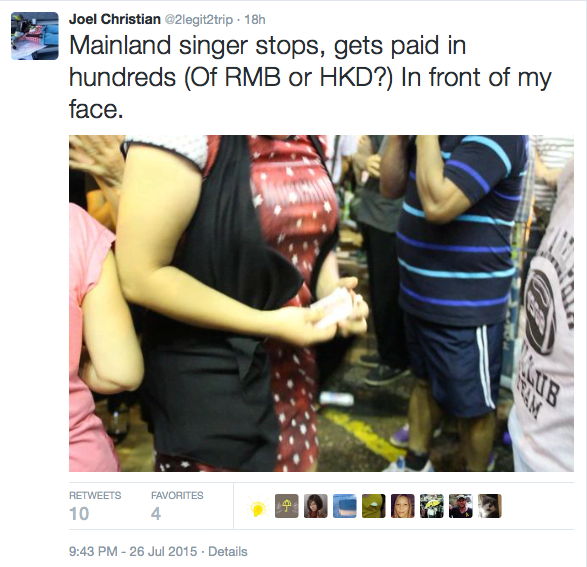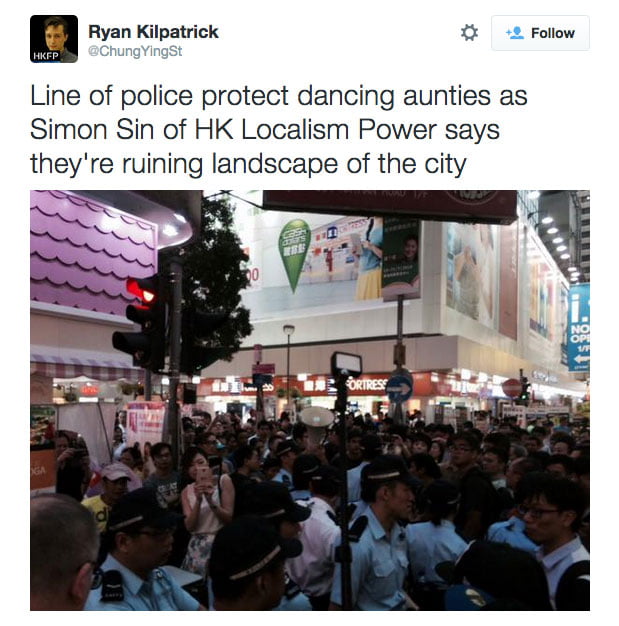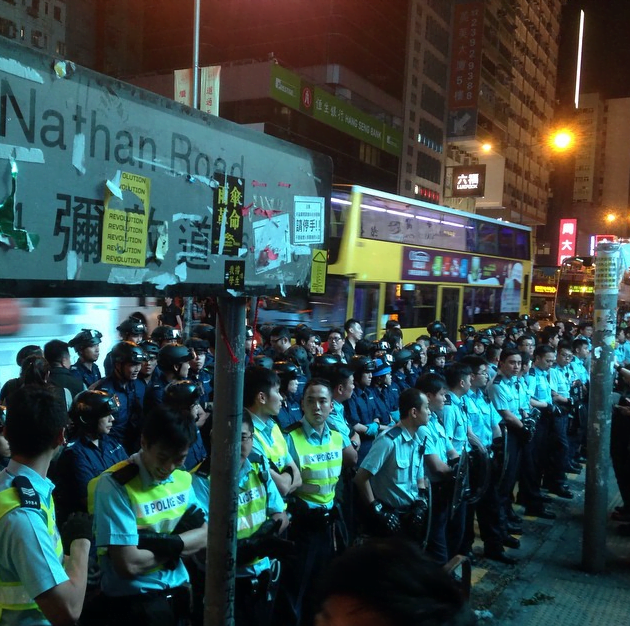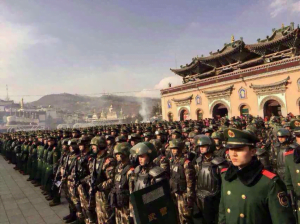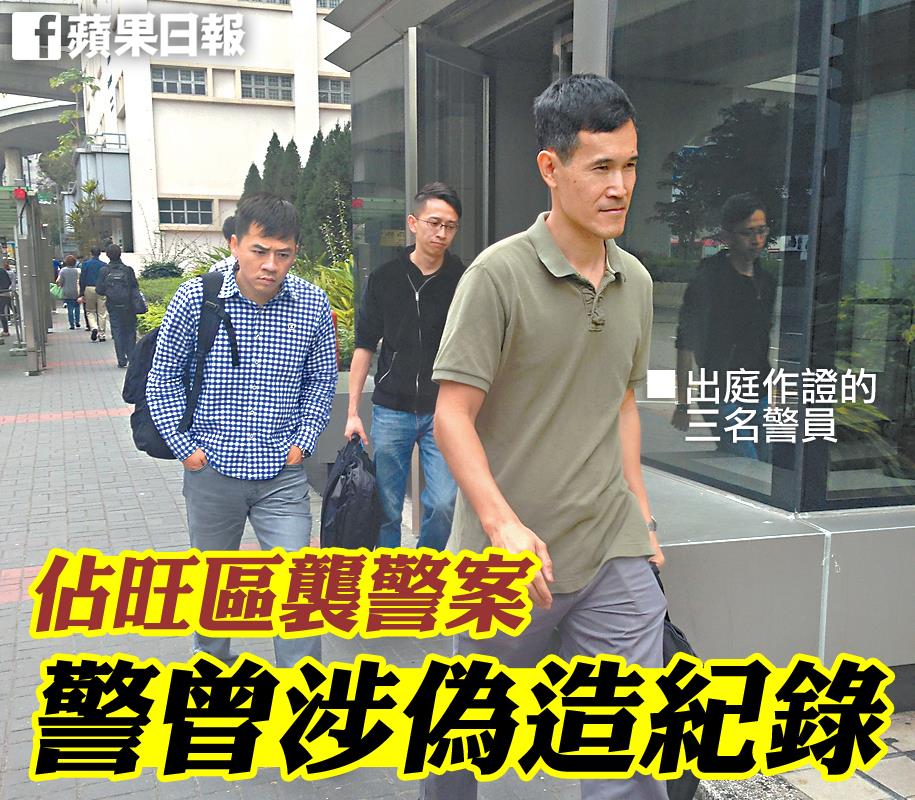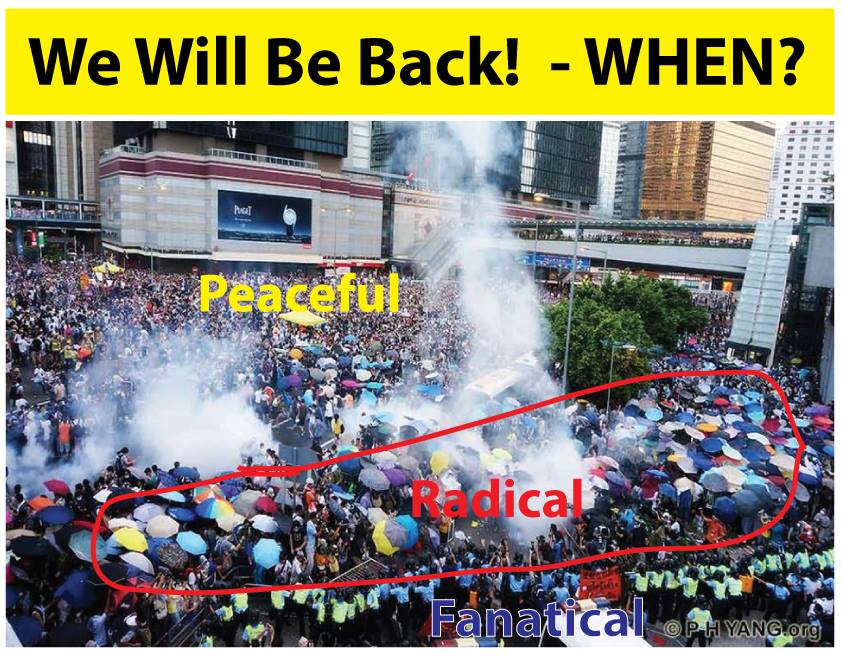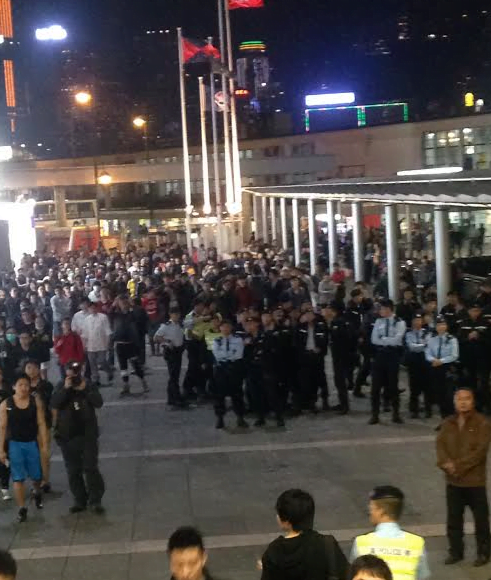
So, the inevitable finally happened on Sunday:
The protests quickly and effectively switched locations and completely wronged stepped the police and any blue ribbon surprises that were set for them in Sheung Shui.
Protesting in Hong Kong will never be the same again.
Tens of thousands of marchers carrying out meaningless walkathons along Hong Kong Island have yielded no results since the Article 23 March. The government is immune to the people’s voice, it only cares what directives it receives from Beijing. But in the space of two months about 500 people have managed to shake up HK politics right up to the very top. Not only have they yanked our aloof ruler’s balls, they are well on their way to achieving real results. For sure the protests can get a little ugly around the edges, but protests are supposed to shake society out of its stupor. Protests are not about showing your face and hoping some other faceless person might then be motivated to sort out the problem some other day. If leaders don’t pay attention to your protests, then they’re not to blame, it means your way of protesting is not effective and needs to be reassessed.
I have watched these protests for hours and have pointed out many times, when the police aren’t there in force, the protests carry on relatively peacefully. Of course, there are minor skirmishes on the peripheries, but this is symptom of the fractured nature of society, it’s certainly not indicative of the violent nature of the groups.
With this in mind, the protesters have flaunted with trying to lose the police, because without doubt, large amounts of police quickly lead to batons out and indiscriminate pepper spraying.
In the first Tuen Mun protest the crowd experimented with being highly mobile and ‘like water.’ On this occasion, protesters visited many smuggler shops where the police presence was minimal and nothing happened. It was only when the police finally caught up with the protesters that they caused a shit-show.
Again, in both Shatin and Yuen Long, the police had ample time to prepare and set their boundaries, which the protesters would inevitably cross, causing more needless violence.
By the time of the Sheung Shui protest, it was already on the cards that a switch could happen from the very get-go. The problem was,
a) There was no leader of the protest. Both Civic Passion and HK Indigenous were not attending the protests in any official capacity
b) It had never been tried before, so would people change?
There was no official command to switch to Tuen Mun, it was all via word of mouth and through small social media networks. As we jumped into a taxi to head to Tuen Mun, we had no clue whether we would find any protesters at all. When we arrived at the Tuen Mun MTR exit there were about 25 protesters milling about. This slowly grew to about 50. After being in Tuen Mun for about 30minutes a lone police car drove up to the station, obviously to check out if the rumours were true. They didn’t get out. By the time we left the MTR the protest was about 150 strong and growing quickly. As we made our way into the first of three shopping centres, the protest was well over 200 people and trailed by about seven highly stressed police. Other than a few shouting matches and the odd box knocked over the protests paraded all the way through Tuen Mun town unfettered by the police.
Tuen Mun belonged to the protesters, there were no police in any number to control them. What did they choose to do with this freedom? They roamed around and shouted a bit, getting lots of attention but there was no out right violence.
Of, course, then the police arrived. We can only guess that they had been transported from Sheung Shui. This seems a reasonable guess, because when they piled out of the vans they all ran pell-mell into Trend Plaza, the scene of the confrontation during the first Tuen Mun protests. The problem was, there were no protesters in Trend Plaza, they were all in VCity. The police then realising that there was no one to contain filed out of the mall and congregated on the street. They had no clue where the protesters were. I can guess this, because neither did we. There were now about 100 police officers outside Trend Plaza. They looked pissed off and I tweeted that they would want to take out their frustration on the protesters if given the chance. They’d been effectively humiliated. So much for police intelligence!
We went off to find the protesters and left the police on the street. By the time we found them they were making their away along the footbridge to Trend Plaza from VCity. This would mark the first time the bulk of the protesters would come up against the bulk of the police. By this time, the protesters had already adopted a fairly new tactic, where wherever the police showed force, they moved away and kept moving. This meant that the police were always playing catch-up and were never able to formulate some kind of containment plan which invariably leads to a hyping up of tensions.
This went on for an hour or so, and I truly believe that the protesters were getting bored and were actually considering finishing as they were just 100m from the MTR station when they were abused multiple times by several blue ribbons. This gave the police enough reason to attack the crowd and you can see from the video I posted on my timeline, the police literally had to run after the protesters to make their presence felt and make some random arrests. This gave the media enough footage to make the protests look dangerous and out of control.
At this stage in the day, I think, if those needless arrests hadn’t happened, people may have been willing to call it a night and go home. But suddenly everyone was motivated again not to be intimidated and the call out to relocate to TST suddenly seemed like a good idea. So, the long journey from Tuen Mun to TST began.
Just like in Tuen Mun, when we arrived, we had no clue if people there were tourists or protesters. The police by this point had picked up on the switch to TST. Not because their intelligence is particularly good, but because it was plastered all over Facebook. The police had had time to make a plan of sorts, which failed at almost every turn and their ultimate goal of not letting the protesters leave the Star Ferry area collapsed quickly.
As the people found a gap in the police net and streamed through, there were about 200 protesters free roaming around TST with the 60 or so officers left at Star Ferry quickly having to come up with something better. We walked all around TST before the officers caught us up and true to form, they created a kettle that congested up the one side of Nathan Road. About 30 random people were caught in the kettle including passersby. Once again the police had succeeded in creating tension where none was needed. A key factor that was happening though was the crowd that surrounded the kettle was now made up by about 20% people from Chung King Mansions. I commented to those around me, if the police increase the tension in this crowd they’ll get more than they bargained for. Unlike regular HK protesters, those in the crowd now would stand their ground and fight and would not be pushed around by highly strung, ill-trained coppers. I think the senior police realised this too, as they began to let everyone in the kettle go, they didn’t even ID them. So what was the point of the kettle?
As people got released from the kettle, the protesters fell back to right outside Chung King Mansions’ door. We were now a mix of protesters and international refugees, and all the police who had created the kettle just five minutes earlier just disappeared. Only a couple of black coats remained on the outer periphery of the group. What was the reason for their disappearance? I can’t say for sure, but I bet it’s because they knew if a jumpy officer sparked an incident it would spiral well out of their control very quickly. Certainly, the HKPF know a good thing when they see one and hog-tying young kids is easy sport compared to dealing with the growing crowd of people the who hang outside Chung King Mansions.
So, that was the day.
The take out is, the days of big police plans are out the window, the police are going to have to think up other ways to stifle protests outside of big containment plans utilising lots of angry officers.
For the protesters, they know first hand the benefits of mobility and as the protest numbers grow their Wild Cat nature will increase too. All of Hong Kong is now a protest site and why have one protest when you can have three or four!

